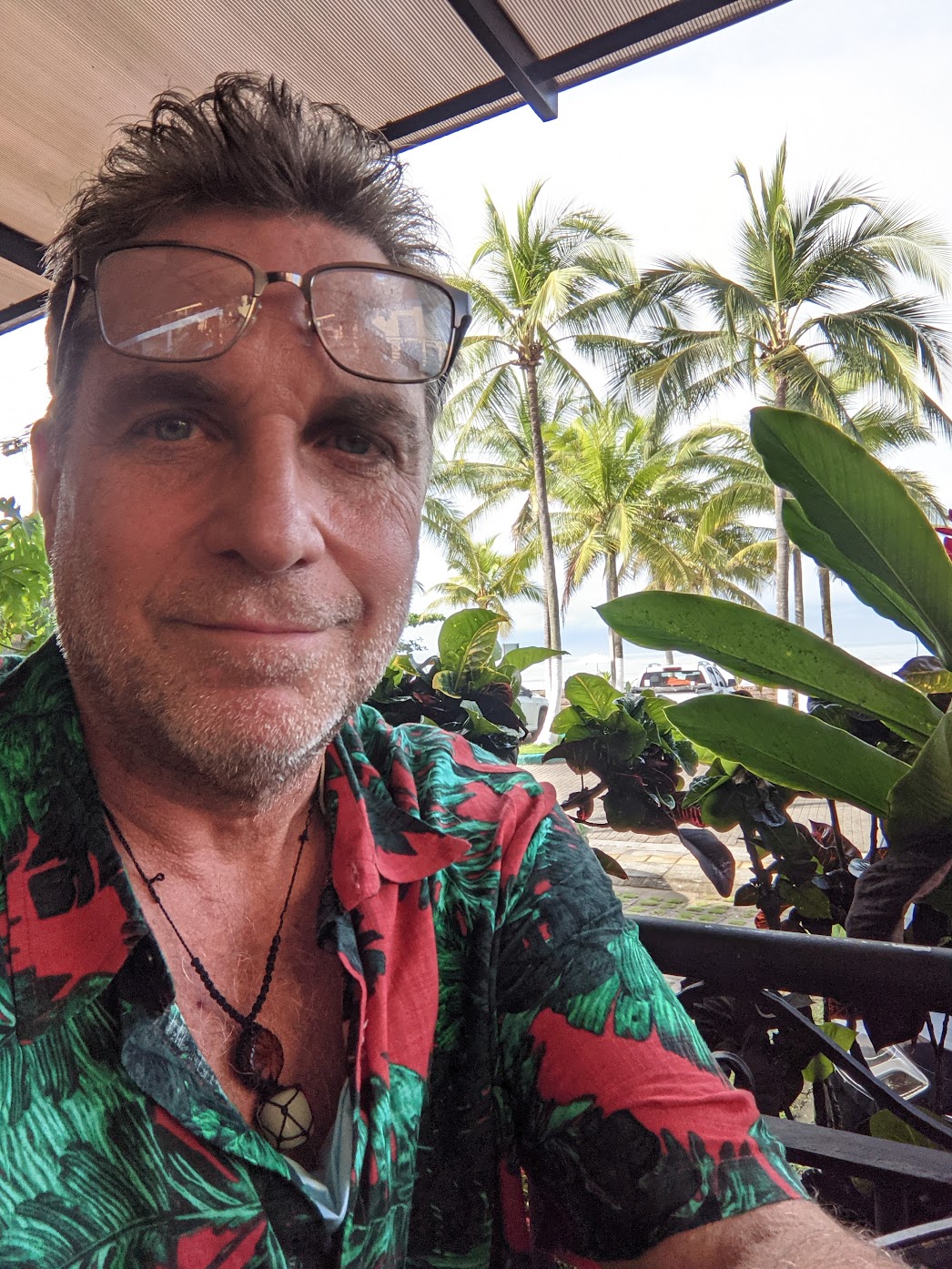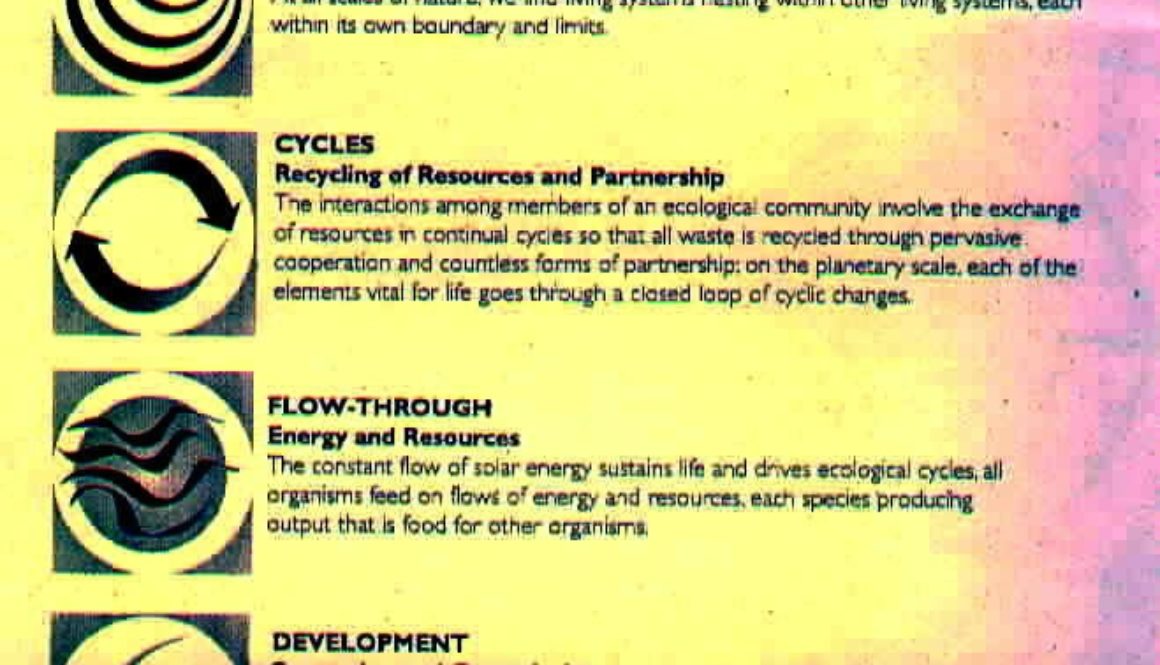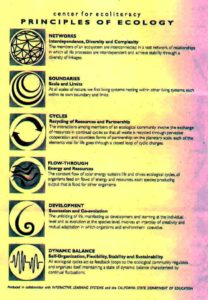Ecological Design Principles
Principles of Ecology
From the Center for Ecoliteracy (By Fritjof Capra)
1-Networks
*Interdependence, Diversity, and Complexity*
The members of an ecosystem are interconnected in a vast network of relationships in which all life processes are interdependent and achieve stability through a diversity of linkages.
2-Boundaries
*Scale and Limits*
At all scales of nature, we find living systems nesting within other living systems, each within its own boundary and limits.
3-Cycles
*Recycling of Resources and Partnership*
The interactions among members of an ecological community involve the exchange of resources in continual cycles so that all waste is recycled through pervasive cooperation and countless forms of partnership: on the planetary scale, each of the elements vital for life goes through a closed loop of cyclic changes.
4-Flow Through
*Energy and Resources*
The constant flow of solar energy sustains life and drives ecological cycles, all organisms feed on flows of energy and resources, each species producing output that is food for other organisms.
5-Development
*Succession and Coevolution*
The unfolding of life, manifesting as development and learning at the individual level and as evolution at the species level, involves an interplay of creativity and mutal adaptation in which organisms and environment coevolve.
6-Dynamic Balance
*Self-Organization, Flexibility, Stability, and Sustainability
All ecological cycles act as feedback loops so the ecological community regulates and organizes itself, maintaining a state of dynamic balance characterized by continual fluctuations.


